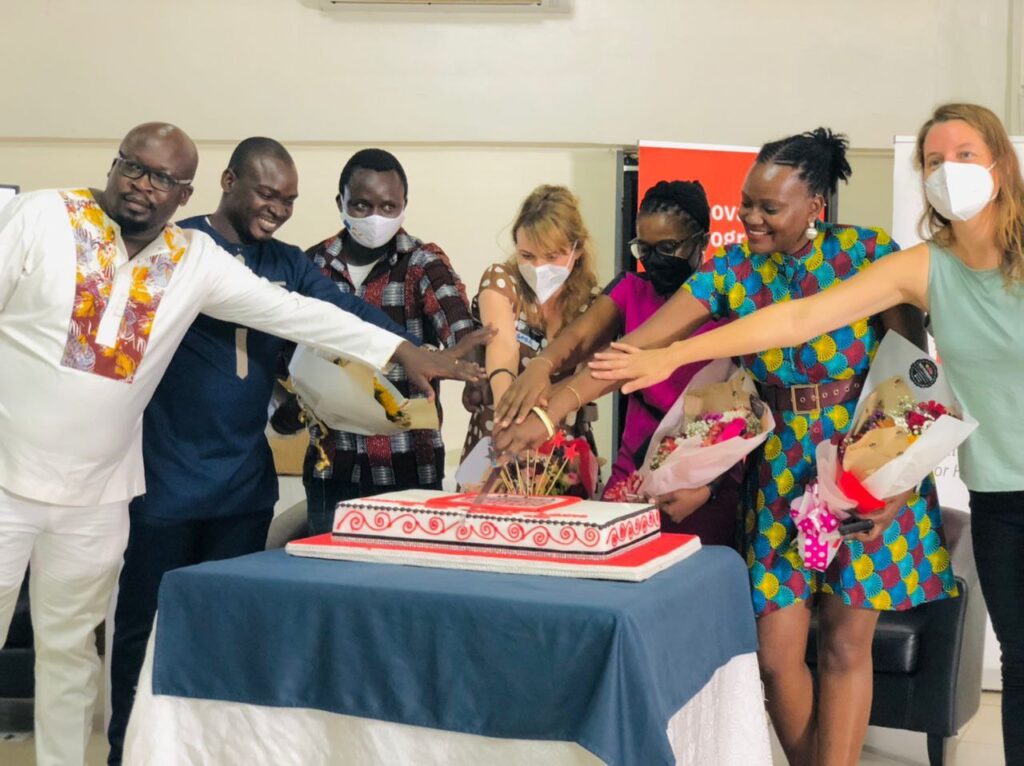After three years of successful networking, advocacy work, and enhancement of human rights structures both for the Ugandan society as well as civil society, the Digital Human Rights Lab, in partnership with StartHub Africa, is transitioning into its next phase: the DHRLab 2.0!
The Digital Human Rights Lab (DHRLab) is a virtual and physical space at the intersection of human rights and digital transformation. It is an open network of actors from Ugandan civil society that seek to strengthen and promote human rights in a digitalized world.
The DHRLab brings together knowledge and expertise connected to organizations, engages individuals, and supports innovative ideas to utilize the potentials of digitalization for human rights work.
At an event held at the Fairway Hotel, the DHRLab unveiled its next chapter to strengthen Human Rights in Uganda and to grow together as a community amidst all of the challenges.
The Innovation Program
The Digital Human Rights Innovation Program aims to create digital solutions for Human Rights Defenders to execute their work in better, more efficient, and more secure ways. Teams apply with a digital idea to win a share of the total amount of 60.000.000 UGX and qualify for the following 6-month Mentorship Programme.
The DHRLab, funded by GIZ, with support from StartHub Africa, has successfully implemented two rounds of the Innovation Program.
The DHRLab Communities of Practice
These are the thematic areas in human rights work in Uganda in which there is a high demand for innovative digital solutions, approaches, and ideas. The communities of practice stand at the core of the program’s network-building.
These communities are best to be understood as places of knowledge exchange among organizations who have similar interests, understanding, and challenges in the human rights and digital technology sector.
- Digital Inclusion: The DHRLab aims to include every person whilst demanding digital human rights.
While ICT offers many opportunities for people around the world, access to ICT tools is not distributed equally and misuse of data bears a risk for vulnerable groups. - Digital Security: Human rights defenders, journalists, and people in positions of marginalization or
vulnerability are exposed to many threats and risks like state and non-state surveillance, repressive censorship, phishing, hacking, data loss. The DHRLab empowers them to defend themselves against any digital security attack. - Cyber Laws & Regulations: Surfing on the internet comes with many threats. Serious crimes like Phishing and the collection of user data, as well as the use of spyware are on the rise. In order to safeguard human rights in this digital age, it is time to start treating cybersecurity as a human rights issue.
- ICT4D Advocacy: To offer improved access to justice in Uganda, the use of ICT has been adopted by the government. At the same time, civil society innovated various tools such as websites and web-based applications that aimed at enhancing justice.
- Innovation for Rural Development: Socio-economic factors play an important role in the uneven distribution of ICT facilitating human rights violations. Hence, supporting Human Rights Defenders is on the DHRLab agenda. Living in rural areas can come with lower access to technology and innovations, leading to
a digital divide. Human rights violations in the periphery are therefore less likely to be reported and difficulties of vulnerable groups may remain unheard.

